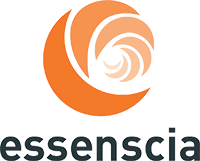The next ten years will be decisive for the future of the EU chemical industry. During this time, it will need to develop its own competitive place in the global economy while adapting to new challenges. These challenges include a decline in globalisation and free trade, the EU goal of a climate neutral economy, a talent crunch and increasing transparency of supply chains due to digitalisation and blockchain.
Daniele Ferrari, Cefic President said: “We will lead this transition by offering European sustainable solutions to global challenges. The “European way” means innovating towards circular models and being at the forefront of new technologies. We invite all parties to engage in the discussion with us to define this European way.”
Chemical recycling and digital technologies
Based on a thorough analysis and dialogue, we conclude the chemical industry can play a key role in transforming waste into valuable feedstock or new materials and can further integrate with other industrial sectors. As European society moves towards greater circularity, the importance of this role will only grow. Chemical recycling is one of the technologies that will make this possible.
A more extensive use of artificial intelligence and blockchain technologies will make chemicals production and chemical risk assessment more efficient and transparent. It will also help better track substances of concern in supply chains and further improve the safety of chemicals in the EU. Applying all these technologies will require a workforce with a completely different skills set.
The report is not a forecast but rather a foresight and an invitation to all stakeholders to enter into dialogue with us. Based on these discussions and feedback, Cefic will be regularly updating this Vision.

